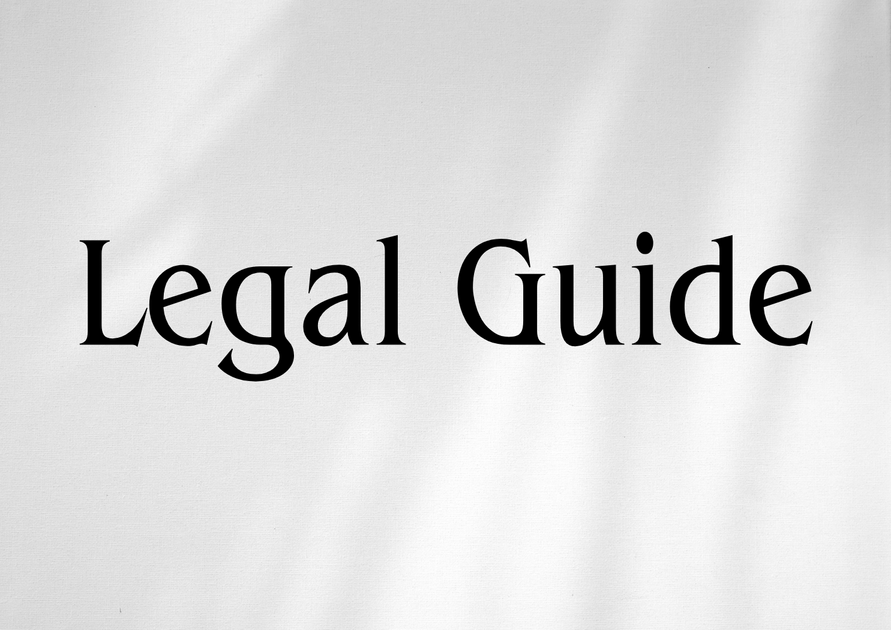Introduction
In the dynamic landscape of Qatar’s financial sector, Islamic banking plays a pivotal role, guided both by Sharia principles and a robust legal framework. With an increasingly complex business environment, disputes involving Islamic financial contracts have become more sophisticated, presenting unique legal challenges and opportunities for businesses, executives, HR management, and legal practitioners with interests in Qatar and the broader GCC. Understanding dispute resolution mechanisms in Islamic banking contracts is critical, particularly in the context of evolving regional laws, increased regulatory scrutiny, and the growing interconnectedness with UAE legal developments. Given the UAE’s position as a legal trendsetter in the region—demonstrated by its recent legal updates and harmonisation efforts—stakeholders need to remain abreast of both Qatari procedures and their implications for entities operating cross-border or holding interests in both jurisdictions.
This consultancy-grade advisory provides an expert analysis of the dispute resolution mechanisms applicable to Islamic banking contracts in Qatar. It delves into the regulatory framework, examines practical dispute scenarios, compares Qatari and UAE legislative approaches, and offers actionable guidance on compliance, risk mitigation, and strategic contract management for 2025 and beyond.
Table of Contents
- Regulatory Framework for Islamic Banking Disputes in Qatar
- Key Legal Principles Governing Islamic Banking Contracts
- Primary Dispute Resolution Mechanisms
- Recent Legal Reforms and UAE Law 2025 Updates Comparison
- Practical Issues in Dispute Resolution
- Case Studies and Hypothetical Scenarios
- Risks of Non-Compliance and Compliance Strategies
- Conclusion and Forward-Looking Best Practices
Regulatory Framework for Islamic Banking Disputes in Qatar
Overview of the Qatari Legal System
Qatar’s legal system is a blend of civil law, Sharia law, and custom. The Qatar Central Bank Law No. 13 of 2012 (‘QCB Law’) and relevant circulars form the foundation for regulating banks and financial institutions, including Islamic banks. For dispute resolution, the Civil and Commercial Procedure Law (Law No. 13 of 1990, as amended) provides primary enforcement, supplemented by the Qatar Financial Centre’s (QFC) structure for international and cross-border disputes. Importantly, the QCB maintains a role as both regulator and dispute referee, particularly in consumer-facing grievances.
Role of the Qatar Central Bank
The QCB, via its Sharia Supervision Department, ensures the compliance of Islamic banks with Sharia principles through regulations and oversight. It issues circulars that guide permissible dispute resolution methods, such as emphasizing arbitration and specialized dispute boards while reinforcing the need for compliance with Sharia. For example, Circular No. (21/2019) underscores the need for dispute mechanisms aligned with principles endorsed by the bank’s Sharia Supervisory Board.
Interaction with QFC Regulations
The QFC Regulatory Tribunal presides over disputes involving licensed entities within the Qatar Financial Centre, often applying English law or bespoke QFC rules. This provides foreign investors and multinational banks an alternative to Qatari civil courts, furthering confidence in accessing impartial and internationally comparable dispute resolution.
Key Legal Principles Governing Islamic Banking Contracts
Essence of Sharia-Compliant Contracts
Islamic finance contracts must align with core Sharia principles, particularly the prohibitions against riba (usury), gharar (uncertainty), and maysir (speculation). Key contract types include:
- Mudarabah (profit-sharing)
- Musharakah (joint venture/partnership)
- Murabaha (cost-plus finance)
- Ijarah (leasing)
Failure of a contract to meet Sharia standards can render it void or unenforceable—increasing the importance of robust dispute mechanisms that not only address civil law requirements but also secure Sharia compliance.
Judicial and Sharia Supervisory Approaches
Qatari courts, including appeals courts, consider opinions of the Sharia Supervisory Boards where relevant, ensuring judgments reflect both legal and religious standards. Practically, this means dispute outcomes can turn on whether transactions are deemed Islamically valid, even if they satisfy commercial requirements.
Comparison Table: Sharia vs Conventional Banking Dispute Principles
| Aspect | Sharia Banking | Conventional Banking |
|---|---|---|
| Applicable Law | Sharia and Civil Law | Civil/Commercial Law |
| Interest | Prohibited | Permitted |
| Dispute Review | Sharia Board often consulted | Judicial review only |
| Remedies | Based on fairness, Sharia compliance | Civil law damages/penalties |
Primary Dispute Resolution Mechanisms
Court-Based Resolution
Conventional court proceedings remain a viable option for both consumers and corporate parties. General provisions are found in the Civil and Commercial Procedure Law, but for Islamic contracts, expert or Sharia board input may be mandatory, particularly where the contract’s compliance is questioned. Significant advantages include enforceable judgments and appeal rights; disadvantages involve slower timelines, less commercial confidentiality, and sometimes limited banking expertise among judges.
Arbitration and ADR Structures
Arbitration—the leading alternative to courts—has gained favor in both Qatar and the UAE. Qatari law (Arbitration Law No. 2 of 2017) modernized the arbitration landscape, and institutions such as the Qatar International Centre for Conciliation and Arbitration (QICCA) have tailored expertise for Islamic finance disputes. To ensure enforceability within Sharia parameters, it is crucial that arbitration clauses:
- Explicitly reference Sharia as the governing law when appropriate
- Require the appointment of arbitrators with Islamic finance expertise
- Provide for separate Sharia review, where necessary
This structure mirrors recent UAE trends (see Federal Law No. 6 of 2018 on Arbitration), furthering regional harmonization and supporting parties with cross-border exposure.
Mediation and Conciliation
While less common for large-value disputes, mediation and conciliation are increasingly promoted by the QCB for consumer banking disagreements, often as a precursor to litigation or arbitration. The process is voluntary and aims for amicable settlement, reducing reputational risk and litigation costs. The QFC also encourages mediation through its Rules on Dispute Resolution (QFC Regulatory Authority Policy Statement No. 7).
Recent Legal Reforms and UAE Law 2025 Updates Comparison
Key Regulatory Updates in Qatar
Qatari authorities have sought to modernize the dispute framework for financial services by:
- Strengthening QCB oversight of Islamic finance operations
- Mandating clearer arbitration provisions in bank contracts (see QCB Circular 21/2019)
- Aligning domestic courts with international arbitral standards for finance contracts
Emerging Trends in the UAE: Relevance to Qatari Stakeholders
The UAE’s recent legal updates—including new Federal Decree Laws and Cabinet Resolutions—provide valuable insights for Qatari executives and compliance officers. Applicable laws include:
- Federal Decree-Law No. 15 of 2020 on Consumer Protection (applicable to financial services)
- Federal Law No. 6 of 2018 (Arbitration Law)
- Cabinet Resolution No. 57 of 2018 on Commercial Contract Disputes
- UAE Law 2025 updates—streamlining alternative dispute resolution and international enforcement
These legal reforms echo Qatar’s direction, with increased emphasis on enforceable arbitration clauses, cross-border mediation, and the alignment of financial contract remedies with international best practices.
Table: Comparison of Qatar and UAE Dispute Resolution in Islamic Banking
| Aspect | Qatar (2024) | UAE Law 2025 Updates |
|---|---|---|
| Arbitration Law | Law No. 2 of 2017 | Federal Law No. 6 of 2018 (strengthened) |
| Mediation/ADR | Voluntary, QCB promoted | Institutionalized, supported by Cabinet Resolutions |
| Sharia Boards | Mandatory advisory role | Integrated or optional, depending on contract |
| Enforcement | Court involvement often needed | Direct enforcement, international treaties frameworks |
Practical Issues in Dispute Resolution
Drafting Dispute Resolution Clauses
Practical issues often arise from poorly drafted dispute resolution clauses. For Islamic banking, ambiguity over the governing law (Sharia, Qatari civil law, or both) can cause protracted litigation. Best practices include:
- Explicit reference to applicable law(s)
- Clear arbitration procedure, seat, language, and appointment method for arbitrators
- Specific mechanism for Sharia compliance review and documentation
Example Clause:
“Any dispute arising under this Musharakah agreement shall be referred to arbitration under the Rules of the Qatar International Centre for Conciliation and Arbitration, with express reference to the Sharia standards adopted by the [bank’s] Sharia Supervisory Board.”
Challenges in Enforcing Arbitral Awards
While the accession to the New York Convention has improved enforcement, practical challenges persist—especially where an arbitral award is alleged to conflict with public order or Sharia. Careful contract drafting and arbitrator selection mitigate these risks.
Management of Multi-jurisdictional Disputes
Businesses with UAE–Qatar cross-border contracts must anticipate conflicts of law. Employing hybrid dispute resolution models—such as mediation followed by binding arbitration, or using QFC/QICCA fora—enhances enforceability and ensures a level of predictability across both jurisdictions.
Case Studies and Hypothetical Scenarios
Case Study 1: Murabaha Facility Dispute
Facts: A Qatari construction company enters into a Murabaha finance contract with an Islamic bank. Deliveries are delayed, and repayment obligations are contested. The company claims the arrangement, by including a penalty for late payment, violates Sharia principles.
Resolution: The dispute proceeds to QICCA arbitration. The tribunal, incorporating input from both a financial expert and Sharia scholar, upholds the penalty only to the extent that it covers actual costs—reflecting both Qatari law and the Sharia Supervisory Board’s recommendations.
Takeaway: Customized penalty clauses, reviewed by Sharia boards pre-execution, help mitigate such disputes.
Case Study 2: Cross-Border Istisna Dispute
Facts: A UAE-based supplier and a Qatari Islamic bank structure a project finance deal via an Istisna contract for manufacturing specialized equipment. Delivery obligations fall into dispute, with each party seeking resolution in their home jurisdiction.
Issues and Solution: Absent a clearly defined forum, parallel proceedings threaten commercial certainty. Ultimately, parties agree to ICC arbitration seated in Doha with a three-member panel (including an Islamic finance specialist). The process results in a binding and enforceable settlement, illustrating the importance of explicit dispute resolution planning for cross-border Islamic finance.
Visual Suggestion: Dispute Resolution Workflow Infographic
Suggested placement: Insert after Case Study 2.
- Step 1: Attempted amicable settlement/mediation
- Step 2: Reference to Sharia Supervisory Board (where required)
- Step 3: Arbitration at QICCA/QFC or agreed forum
- Step 4: Enforcement via Qatari or international courts
Risks of Non-Compliance and Compliance Strategies
Risks and Liabilities
Non-compliance with QCB regulations or failure to embed Sharia compliance in dispute resolution can result in:
- Void or unenforceable contracts
- Penalties or directives from QCB
- Reputational damage
- Loss of banking license (in severe cases)
Compliance Checklist Table
| Action | Responsibility | Frequency |
|---|---|---|
| Review contract templates for Sharia compliance | Legal/Compliance Team | Annually or when updated |
| Train staff on dispute resolution best practices | HR/Compliance | Semi-annually |
| Consult with Sharia Supervisory Board on new products | Legal/Board Secretary | Project basis |
| Audit the enforcement of arbitration clauses | Internal Audit | Quarterly |
Recommendations for Best Practice
- Integrate multi-tiered dispute resolution clauses that escalate from amicable negotiation/mediation to binding arbitration
- Secure Sharia board sign-off for all dispute provisions in Islamic finance contracts
- Participate in industry-wide legal training and compliance workshops to remain updated on cross-border legal changes
- Develop incident response procedures for dispute-related regulatory inquiries
Conclusion and Forward-Looking Best Practices
As Qatari and UAE legal systems converge in adopting best-in-class dispute resolution frameworks, businesses must adapt accordingly. The sophistication and enforceability of Islamic finance contracts now depend on a delicate blend of Sharia principles, civil law, and robust alternative dispute resolution mechanisms. For companies and financial institutions operating in (or with) Qatar, a forward-looking approach means not only aligning contract practices with current regulations but also anticipating the regional harmonization driven by UAE’s 2025 legal updates.
In practice, this requires ongoing legal review, refined compliance processes, proactive stakeholder training, and the embedding of dispute resolution governance into all phases of contract management. By leveraging QFC channels, expert arbitration panels, and recognized international standards, organizations can mitigate risk, preserve reputational capital, and ensure commercial certainty.
With financial regulators in Doha and Abu Dhabi setting ever-stricter standards, delay in implementing updated dispute strategies may result in lost opportunities, regulatory sanction, or unenforceable arrangements. Proactive, well-advised organizations who integrate legal, Sharia, and compliance perspectives will be best positioned to navigate the rapidly evolving Islamic banking environment in Qatar—and across the GCC—successfully in 2025 and beyond.




